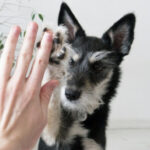How To Stop Dogs From Eating Poop
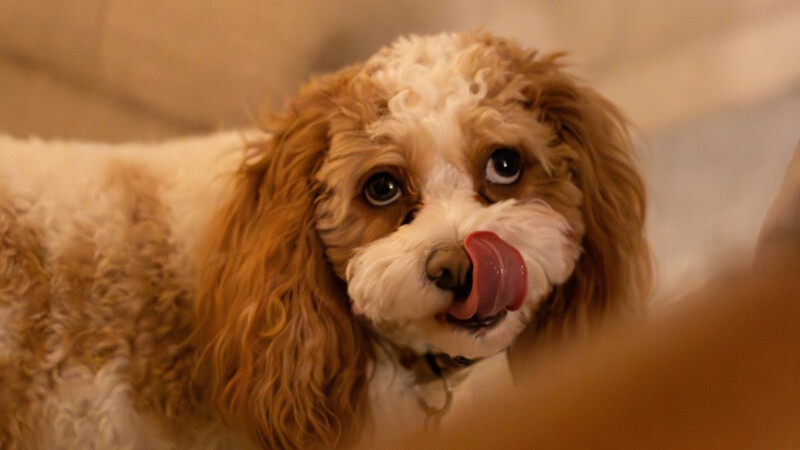
How to stop dogs from eating poop is often a concern for pet owners, as it’s not uncommon for canines to have different dietary preferences than humans, including a tendency towards feces consumption.
While almost 16% of dogs frequently engage in this unsavory behavior, their human companions generally find it distasteful and seek solutions to curb it.
Understanding the reasons behind your dog’s attraction to excrement is crucial, but there are also practical steps you can take (including dietary additions) to discourage them from this habit.
We will explore why dogs may eat poop and strategies to effectively prevent this behavior.
What causes dogs to consume feces?
The act of eating feces, known as coprophagia, stems from various factors that can be broadly categorized into behavioral or medical reasons.
Behavioral factors leading to Coprophagia
Often, coprophagia in dogs is rooted in behavioral issues, such as:
• Anxiety or nervousness
• Stress-related factors
• Lack of stimulation or boredom
• Seeking attention or interaction
• Cleaning up after indoor defecation
• Mimicking other dogs’ feces-eating habits
• Mother dogs cleaning their puppies
• Efforts to maintain a clean living space
Medical factors leading to Coprophagia
Medical conditions can also prompt dogs to eat poop, making a veterinary consultation advisable, particularly if this behavior is new. Possible medical explanations include:
• Diabetes-related issues
• Thyroid imbalances
• Malabsorption syndrome
• Pancreatic inflammation or pancreatitis
• Lack of digestive enzymes
• Internal parasites
• Exocrine pancreatic insufficiency (EPI)
• Gastrointestinal infections
• Improper feeding (overfeeding or underfeeding)
• Nutritional shortfalls, often observed in kibble-fed canines
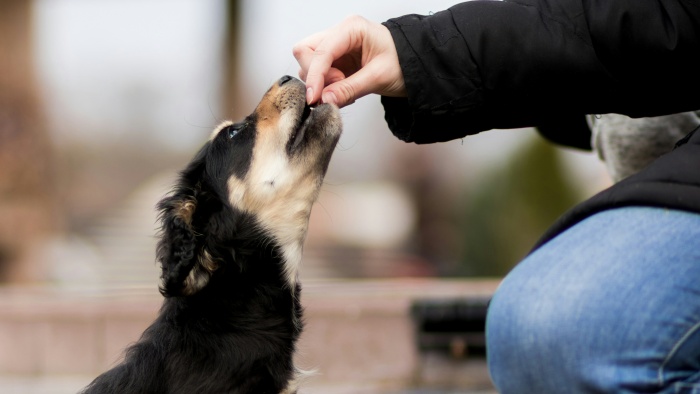
Intriguing data on dogs consuming feces
Research indicates that about 16% of dogs (close to one in every six) have been observed eating feces on at least six occasions. Additional findings from the study include:
• 92% of dogs show a preference for feces not older than two days
• Male dogs that are not neutered are less inclined to consume stool
• Female dogs are more prone to eating feces
• Dogs seem to be more drawn to feces that are firm or frozen, leading to the term “poopsicles”
• Dogs that are known to snatch food from tables are also more likely to indulge in excrement
• The occurrence of coprophagia tends to be higher in households with multiple dogs
• A significant 85% of dogs who eat feces will usually choose those from other dogs, rather than their own
Preventing dogs from eating feces
To deter your dog from consuming feces, it’s essential to understand the underlying cause, which can be elusive. Often, dog owners need to experiment with various strategies to eliminate this unpleasant habit.
It’s noteworthy that dogs fed with kibble tend to absorb less nutrition, producing more fecal matter and thus, might be inclined towards coprophagia.
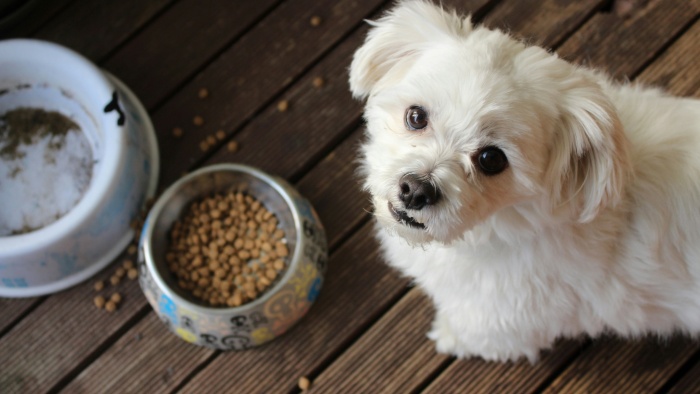
In contrast, dogs on a raw diet generally assimilate more nutrients, have fewer bowel movements, and are less likely to look for extra nutrition in feces.
Hence, changing your dog’s diet to a raw food regimen could effectively curb their tendency to eat poop.
Provide a high-quality diet for your dog
The tendency of dogs to consume feces is often linked to nutritional deficiencies, implying that offering your dog the best quality, most nutritious, and species-specific food might deter them from seeking additional nutrients in their excrement.
Dogs are naturally inclined to consume raw meat, with the digestive system of a Chihuahua being surprisingly similar to that of a wolf. The advent of kibble, a product of the last century, was more about human convenience than canine nutritional excellence.
Leash your dog during walks
Leashing your dog during walks allows you to exert greater control over their movements, helping to steer them clear of feces and other undesirable items they might consume.
Promptly clean up after your pet
Whether your dog is leashed or not, promptly removing their feces not only prevents them from ingesting it but also maintains cleanliness for everyone. Letting waste accumulate even for a week turns your yard into an undesirable feast for your dog.
Instill the “leave it” command in your dog
Following the basics like “sit” and “stay,” teaching your dog the “leave it” command is invaluable. This instruction is crucial not just for avoiding feces but also for other harmful objects your dog may encounter and be tempted to ingest.
Consider these additions to your dog’s diet
Incorporating certain items into your dog’s diet might aid in deterring them from their poop-eating habits, whether it’s for nutritional reasons or taste preferences.
• Canned pumpkin puree (not the pie mix) is rich in fiber and nutrients, potentially addressing minor nutritional gaps and helping your dog feel fuller for longer.
• Apple cider vinegar, at a ratio of 1 teaspoon per 25 pounds of dog weight mixed with their food, can improve digestion and alter the scent of their waste, possibly making it less appealing to them.
• Probiotics, available in various forms like liquid, powder, and capsules, introduce beneficial bacteria to your dog’s gut. If your dog is eating feces for bacterial benefit, probiotics might be a solution.
• Digestive enzyme supplements, in liquid or powder form, aid in breaking down food more efficiently, ensuring better nutrient absorption and less undigested food in their feces.
• Steamed and finely chopped green vegetables, high in fiber, may satisfy your dog’s texture preference, akin to fresh feces.
• Raw pineapple (not canned), containing the enzyme bromelain, assists in protein digestion and alters the taste of your dog’s feces. Use sparingly due to its high sugar content.
• Coconut oil, at a quarter teaspoon per 15 pounds of body weight, could fulfill your dog’s fat cravings, potentially steering them away from feces.
• Citrus fruits, enjoyable and healthy, contain citric acid which can render their feces taste unappealing.
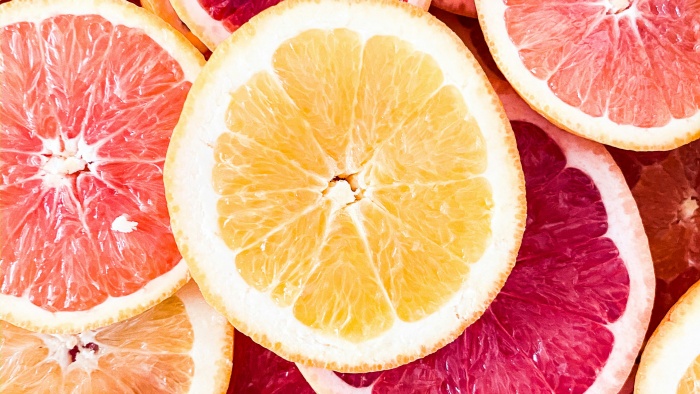
Consider transitioning to a raw diet
Are you aware that dogs on a raw diet often have smaller, more compact stools compared to those fed other diets? By consuming a diet where all ingredients are efficiently digested, your dog might lose the urge to seek additional nutrients in feces.
A raw diet offers multiple benefits. Your dog may show reduced allergy symptoms, improved weight management, healthier skin and coat, enhanced digestion, increased vitality, brighter teeth, and more.
In adopting a raw feeding regimen, portion control is key. Amounts should be tailored to your dog’s age, breed, weight, activity level, and spaying/neutering status, ensuring optimal health and well-being.
Explore more about the advantages of a raw diet and assess the best options for your dog through our informative quiz.
Regular health check-ups and professional consultations
In addition to the methods mentioned above, it’s crucial to regularly take your dog for health check-ups. Veterinarians can conduct examinations to rule out or diagnose potential medical issues that might cause your dog to eat feces.
Moreover, if you face challenges in altering dietary habits or in behavior training, consider consulting with a professional animal behaviorist or trainer.
The advice and guidance from professionals can offer significant assistance in resolving your dog’s coprophagia issue.
Conclusion
Understanding how to stop dogs from eating poop involves a multi-faceted approach.
Regular health check-ups and consultations with professionals are essential in identifying and addressing any underlying medical or behavioral causes of coprophagia.
Additionally, considering dietary changes, such as transitioning to a raw diet, can significantly impact your dog’s overall health and reduce their attraction to feces.
Implementing simple yet effective training commands like “leave it,” and maintaining a clean environment can also play a crucial role.
Lastly, for better control during walks and to prevent access to feces, investing in a good dog harness is highly recommended.
This tool not only aids in managing your dog’s movements but also ensures a safer and more enjoyable walking experience, contributing to the overall strategy to stop dogs from eating poop.
FAQs
Is changing my dog’s diet to raw food the only solution to prevent coprophagia?
While transitioning to a raw diet can be beneficial in reducing coprophagia, it’s not the only solution. Tailoring your dog’s diet to their specific nutritional needs, regardless of whether it’s raw or high-quality commercial food, can help. It’s also important to consider other factors like behavioral training and environmental management.
How can I tell if my dog’s coprophagia is due to a medical issue?
Signs that coprophagia might be medically related include sudden onset, changes in appetite or weight, or other symptoms like lethargy or digestive upset. A veterinary examination is crucial to rule out medical causes such as nutritional deficiencies, gastrointestinal disorders, or parasites.
Are there specific breeds more prone to eating feces?
While any dog can develop coprophagia, it’s more commonly observed in certain breeds due to genetic, behavioral, or environmental factors. Consulting with a veterinarian or a canine behaviorist can provide insights specific to your dog’s breed.
Can coprophagia in dogs be a temporary behavior?
Yes, coprophagia can be temporary, especially in puppies exploring their environment or in dogs experiencing short-term stressors. Consistent training and providing a stable environment can help reduce or eliminate this behavior.
Is it safe to use home remedies like adding vinegar or pineapple to my dog’s diet to stop them from eating feces?
While some home remedies, like adding small amounts of apple cider vinegar or pineapple to your dog’s diet can be safe, it’s important to consult with a veterinarian first. They can ensure that these additions won’t harm your dog and are appropriate for their specific dietary needs.

